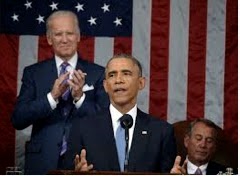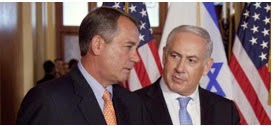I introduced my phrase about the quality of life in an essay in my last edition of Don’t Just Stand There. Do Something. The quality of our lives is surely influenced by it’s content, but my life got so much easier when I realized that though it was made up of many things, people, and circumstances from jobs/careers, friends, romance, family, health, and the things I like to do for pleasure or service or education or enlightenment–perhaps the planting of seeds for a garden or the planting of ideas for growth–it feels like one complete statement. My spiritual development is a large part of my life, and who I vote for contributes to my sense of myself and my purpose, and allows me to define my days within the parameters that serve me and allow me to be of service. To a great extent, my life embraces things that seem at odds, like spirituality and skepticism about religion, being a romantic and not being interested in romance at this time, loving life and working in areas that call on me to look at death, and loving theater and film, yet preferring to write about reality (though my reality can seem pretty dramatic). I am an activist, and in that vein I have found myself happily able to take the news of the day seriously and find ways to immerse myself in the issues that call to me and move me to do something. I put my picture between two of the events that got to me recently: the response to terrorism in Paris from cities around the world, and the celebration of Martin Luther King’s Jr.'s birthday in the wake of the release of the powerful film Selma, which, if I were an Oscar voter, would get my vote for Best Picture and for Ava DuVernay as Best Director (though mysteriously, she did not get the nomination).
Both terrorism in Paris, and MLK’s birthday brought masses of people into the streets, inspiring huge marches that I can no longer participate in because of a leg injury. But I have marched for civil rights, and for freedom of speech, and for AIDS drugs, and for quality care, reproductive rights, and women’s rights, and against the Vietnam and Iraq Wars. I protested with AIM (the American Indian Movement), to re-claim the land beneath Fort Sheridan. The fort was being evacuated and, according to treaties, the land was to revert to its original tribal owners should it cease to be used by the military. Instead, the land was put up for sale. And there’s more, like Occupy Wall Street, which is where I sustained my injury–not at the hands of cops, but helped by the hands of two lovely lefty activists who rushed over to scoop me up from where I was lying with my leg twisted underneath my body, the result of having slipped on wet pavement. So, as I said, my marching days are over, but the typewriter is mightier than the cane, so I do my activism here at the computer by inviting you to do what you can and to participate in supporting the causes and issues that you care about.
What We Can Do:
Both terrorism in Paris, and MLK’s birthday brought masses of people into the streets, inspiring huge marches that I can no longer participate in because of a leg injury. But I have marched for civil rights, and for freedom of speech, and for AIDS drugs, and for quality care, reproductive rights, and women’s rights, and against the Vietnam and Iraq Wars. I protested with AIM (the American Indian Movement), to re-claim the land beneath Fort Sheridan. The fort was being evacuated and, according to treaties, the land was to revert to its original tribal owners should it cease to be used by the military. Instead, the land was put up for sale. And there’s more, like Occupy Wall Street, which is where I sustained my injury–not at the hands of cops, but helped by the hands of two lovely lefty activists who rushed over to scoop me up from where I was lying with my leg twisted underneath my body, the result of having slipped on wet pavement. So, as I said, my marching days are over, but the typewriter is mightier than the cane, so I do my activism here at the computer by inviting you to do what you can and to participate in supporting the causes and issues that you care about.
What We Can Do:
- How about being in touch with your legislators about the issues you care about to find out how you can best support them to take those issues on? www.house.gov; www.senate.gov
- Also be in touch with your local legislators to tell them what issues you want them to take on.
- Create and circulate a petition that represents something you want to see happen or taken care of: www.change.org/make-a-petition or www.petitions.moveon.org.
- Ask legislators and others who care to take on the work civil rights. We do not have legal segregation any more but see it where it is.
The State of the Union & Beyond
President Obama’s State of the Union address offered up an agenda that included a far-reaching vision of inclusion, support for those who need a hand up, and “21st Century Ideas." He told us that “values are at stake,” and then laid out his values: ending the embargo on Cuba to reflect America's new policy toward that country, funding for two years of community college for those who meet a set criteria, seven days paid sick leave, funding for infrastructure and research, quality child care, quality education for our children, women’s healthcare rights, freedom of religion, and the right to vote. When he mentioned the minimum wage, he challenged Congress, saying, “If you think you can survive on 15K a year, try it.” He set the agenda for Democrats to make a commitment to democratic principles, indicating that everyone had to do their fair share and that big corporations have to be part of it–closing loopholes so that the 1% would no longer be able to get away with not paying for their privileges. I couldn't help but notice the grimace that seemed frozen on Speaker Boehner's man-tanned face throughout the event, and his reluctance, along with other Republicans, to applaud for anything President Obama suggested–this despite their recent striving to sound more liberal. The late night comedy shows had a field day with jokes about how the Republicans must have been literally glued to their seats. The President also indicated that there is no greater threat to America than climate change, which some ridiculous Republicans who fancy themselves winning the White House in 2016 will still not admit is partially man made. This is the Barack Obama I voted for, and while I knew he was going to get plenty of flack from the right for caring about people and not including corporations in that category, I had to smile, and suddenly, I heard the strains of Janis Joplin singing in my mind: “Freedom’s just another word for nothing left to lose….” It was a good night for progressives. We’ll see what happens in Congress.
I recently saw American Sniper, and after the film ended, while pulling my coat on to face the cold New York night, I remembered that I had work to do on this edition of Don’t Just Stand There. Do Something when I got home. During the cab ride to my apartment, it occurred to me that when John Boehner invited Bibi Netanyahu to address both houses of Congress without running it by or informing the President, he’d recruited Bibi to take on the Bradley Cooper role of a sniper. He’d set Bibi up to take pot shots at President Obama from behind the safety of the podium in the House of Representatives. Boehner and Bibi are two self-aggrandizing politicians who’ve formed an alliance designed to bring down President Obama, who in Boehner’s imagination must represent the Great Satan for not devoting himself exclusively to the 1%, and likely in Bibi’s mind he’s a foe for not being an enemy of Palestine. In other words, both “leaders” suffer from visions limited to their own narrow political goals. Clearly I’m not the only one finding the idea behind this plan abhorrent, as it seems that Bibi’s trip has been postponed with no future date selected and as far as I know, no real reasons given.
What We Can Do:
What We Can Do:
- If you were pleased with The State of the Union please write to the President to say thank you and which of the things he said he’d do are most important to you.
- Then write to Boehner and McConnell to tell them the same thing.
- You might also want to say a few words to Boehner about consorting with foreign dignitaries in an extremely improper and backstabbing, teenaged, kind of way, by colluding with Bibi.
In closing:
I just want to mention that Vice President Biden, speaking to the Organization of Minority Women, offered these beautiful words, that seem to resonate with those used by New York City Mayor Bill de Blasio in discussing his own son: "The fear that your child may be presumed to be a gang member or a suspect or that someone in authority is looking at that child and seeing only a profile and not an individual." However, Vice President Biden also defended police officers saying, "I also worked with thousands of honorable women and men wearing a uniform," and targeted two points on the relationship between minority communities and law enforcement: "One, cops have a right to go home at night to see their families. And two, all minorities no matter what the neighborhood, have a right to be treated with respect and dignity." He added that he and President Barack Obama believe, "We can help change the way police patrol their often dangerous streets, without jeopardizing the community." I thought this would have made a great closing for the section in my last edition of this blog on Ferguson's and New York’s interactions between the police and the communities where altercations took place. But now is a good time as well.





No comments:
Post a Comment